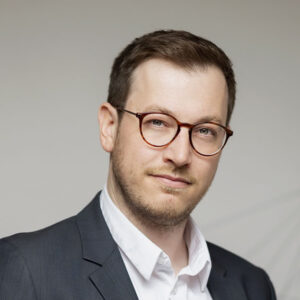Stadtwirtschaft Weimar GmbH, TEAG and Bauhaus-Universität are starting a project for hydrogen mobility in public transport. With funding of around 3 million euros, the Thuringia Energy Ministry is supporting the acquisition of public buses with hydrogen drives in Weimar. The subsidy notice was presented today by Thuringia’s Energy Minister Anja Siegesmund in Weimar.
Another subsidy notice of the Federal Ministry for Digital and Transport (BMDV) in the amount of 1.25 million euros to construct the hydrogen electrolyser is already available, funded in the framework of the National Innovation Programme for Hydrogen and Fuel Cell Technology (NIP).
“Out of fossil energy as fast as possible, and into innovative technology and renewable energies from the region – that is the right way forward. It’s why we are happy to support this pioneering project. Here, as well as all over Thuringia, the focus is on zero-emission and climate-friendly local transport”, said Siegesmund today in Weimar. With nearly 30 e-buses funded by the Energy Ministry in Thuringia, Weimar is breaking new ground: for the first time, hydrogen fuel cell buses will be on the road in Thuringia’s public transport system, according to Siegesmund.
This means a joint H2 project of Stadtwirtschaft Weimar GmbH (SW Weimar), TEAG Thüringer Energie AG and Bauhaus-Universität Weimar can begin. According to the signed letter of intent, the hydrogen electrolyser and a H2 refuelling station are to be built on the premises of SW Weimar in Industriestrasse. The electrolyser will be operated exclusively with green electricity in order to produce green hydrogen as a result.
For green electricity generation, TEAG also plans to build a photovoltaic system on SW Weimar land. The use of waste heat from the electrolysis process is also planned to reduce the use of fossil fuels for heat generation on site.
Local public buses will be H2 vehicles powered by fuel cells, and also in future, a waste disposal vehicle run by Weimar’s municipal service will be too. With this drive configuration, the hydrogen is not used directly as an energy source for engines, but rather the engines are powered by electricity generated by the fuel cells.
The H2 mobility project for local transport in Weimar is the first joint initiative of municipal utility companies in Thuringia on hydrogen infrastructure. Mayor Peter Kleine sees yet more potential for H2 mobility in Weimar: “Hydrogen can not only be used for clean mobility, but also for efficient supply of electricity and heat and as a basis for alternative fuels or as a process gas in industry. Considering current challenges in the energy sector, it is positive that we are actively advancing new technologies.”
For SW Weimar, the move into hydrogen-based mobility is, along with the e-nightline, another step towards breaking free of fossil-based, petroleum and mineral oil drive concepts. “We want to see how the requirements of vehicles in the public transport fleet and the municipal economy can be managed by hydrogen as an energy source”, said Jörn Otto, Managing Director of Stadtwirtschaft Weimar GmbH. “Entire fleets could then potentially be run with green hydrogen”.
TEAG board spokesperson Stefan Reindl emphasises the drastically increased importance of hydrogen as an energy source. “Green hydrogen is the energy source of the future – it can solve the problem of the lack of storage options for green electricity. Furthermore, so-called sector coupling works excellently with hydrogen. Here in Weimar, our H2 project is providing a mobility solution for municipal urban transport. But hydrogen can also be used to generate heat for homes, generate electricity or as a process energy in industry”. In addition, hydrogen currently offers a path in the medium term to releasing dependency on energy imports, particularly from Russia, added the TEAG board spokesperson.
Bauhaus-Universität Weimar as scientific companion
Bauhaus-Universität Weimar came on board as a project partner to provide scientific support. It brings its expertise to the table, including for the laboratory simulation of the electrolyser’s operation. Cooperation in the field of environmentally-friendly mobility has existed with Weimar University for some time. For example, the expansion of the municipal charging network for e-vehicles in Thuringia has been based on the traffic planning of experts in Bauhaus-Universität since 2017.

